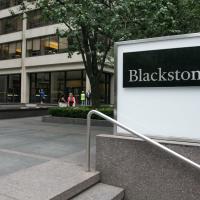Two thirds of Limited Partners (LPs) believe that the rapid growth of private equity ‘shadow capital’ – direct investments, co-investments and separate accounts – will reduce the returns of commingled private equity funds, according to Coller Capital.
The firm’s latest Global Private Equity Barometer explains the popularity of co-investments, a form of shadow capital embraced by around half of private equity investors: almost two thirds of LPs report that their co-investments have generated higher returns than their overall private equity portfolios in recent years.
Investors believe the investment environment is becoming more difficult to navigate – almost 70 per cent of LPs say that the unpredictability of today’s global economy is making investment decisions inherently harder. This fact has not dampened their enthusiasm for private equity, however – with 88 per cent of LPs intending to maintain or accelerate their pace of commitments over the next couple of years.
“Investors can see past short-term market fluctuations,” says Jeremy Coller, CIO of Coller Capital. “In a world where many asset classes are unpredictable or struggling, they believe private equity will continue to deliver good long-term risk-adjusted returns.”
Limited Partners have become more discriminating in recent years – 70 per cent of LPs say that private equity investors are less loyal to individual GPs than they used to be – and this has increased the competition between LPs for the most in-demand funds. Heightened competition has proved challenging for some investors, especially medium-sized ones – almost 90 per cent of medium-sized Limited Partners say they are struggling to invest at the level they want with their chosen managers.
Investors in private equity believe that investment talent is becoming more mobile within their sector; two thirds of LPs say individuals are more likely to move to another investing institution than they were five years ago.
Investor views on the way they are paid is interesting in this context. Over half of LPs believe that a performance-related element should be added to – or comprise a larger part of – their remuneration.
The reputation of the asset class is gradually improving, investors say. Two thirds of LPs believe that private equity’s reputation is neutral or good now, compared with 55 per cent of LPs in the Barometer of Summer 2012. Encouragingly, 44 per cent of investors committing to private equity believe that the industry deserves a better reputation than it currently has.
A quarter of LPs are planning to reduce their target allocations to hedge funds. However they are, on balance, planning to increase their exposure to other kinds of alternative assets – around one third of LPs intend to increase their allocations to private equity, infrastructure and real estate.
LPs are continuing to achieve attractive returns from private equity – with 87 per cent of LPs having achieved net annual returns of more than 11 per cent over the lifetime of their private equity portfolios, and one fifth having achieved net returns of over 16 per cent. One third of LPs have had net returns in excess of 16 per cent from North American buyouts, and over a quarter of LPs achieved similar returns from European buyouts.
Investors say that they expect the returns from private debt funds to decline over the next 3-5 years.
LPs as a group expect private equity conditions to improve gradually over the next couple of years, with 2017 being a stronger vintage year than 2016 in North America and Europe. Conditions in North America this year are generally thought to be more challenging than those in Europe – with two fifths of investors saying they expect 2016 to be a weaker-than-average vintage year in North America.
Investors are pursuing similar strategies for North American and European private equity. As a group, they are planning to reduce their exposure to large buyouts slightly, and build exposure to small and mid-market buyouts, to growth capital and to private debt.
In emerging private equity markets, Asia is a favoured destination for investors. Over half of LPs have exposure to Chinese private equity, and a quarter of this group plan to increase their commitments. Two fifths of LPs have exposure to South East Asia and India, and 17 per cent of these LPs plan to add to their commitments in each region. Although only just over a tenth of Limited Partners currently have private equity exposure to Africa, one third of this group are planning to increase their commitments.






